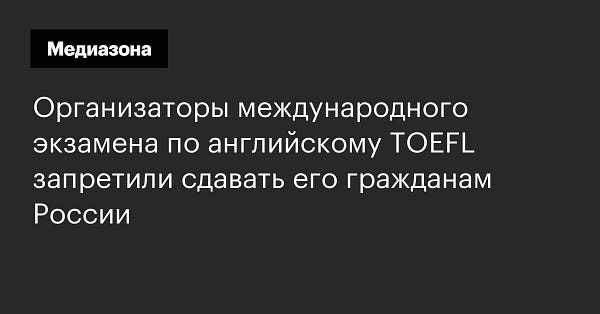TL;DRussia Weekend Roundup
6 August 2022: Testing the waters, plus texts and tunes (and an apology)
Welcome to the second edition of the TL;DR Weekend Roundup — meant to be an opportunity to share some thoughts, some moderately light reading, and a bit of music of a Saturday morning. Plus, this week, an apology: Subscribers may have noted that the email version of Thursday’s TL;DR newsletter (aside from being chock full of shameless self-promotion) had a sentence right in the middle that began, but never ended. Ironic, I suppose, for a post titled ‘Beginnings and ends.’
I’m not quite sure what happened there, but it’s correct in the web version, so if you felt left hanging, please do give it a second go! By way of amends, I give you a picture of one of my favorite places on the planet, taken at a bend in the Eno River here in Durham.
What I’m thinking about
Squaring circles is big on my agenda these days. Making sure the various bits and pieces of my thought processes fit together, and keeping my analysis and arguments consistent, is getting harder and harder to do.
Take, for example, this Tweet and the ensuing mini-thread from Tuesday, when I learned that the Educational Testing Service was banning Russian citizens anywhere in the world from taking the Test of English as a Foreign Language (TOEFL), one of the tests accepted by most anglophone universities for admissions purposes.


My argument — that Western companies and governments shouldn’t be helping Putin in his bid to isolate young, globally minded Russians from the rest of the world — was, in fairness, supported by the vast majority of people who responded to the Tweet. There were those, however, who felt differently, and to them I responded more or less as follows:


On Thursday, however, I published a post here on TL;DRussia (the one with the never-ending sentence), revisiting the core argument of my book, co-authored with Graeme Robertson, Putin v the People — out in paperback now in the UK and in September in the US, and updated to include the war. The book’s core argument is that authoritarianism in Russia is ‘co-constructed’:
The whole edifice of Putin’s power has been reinforced day after day by the actions and beliefs of millions of Russians all across that vast country. This is what we mean when we say that power in Russia is co-constructed.
Now, to be clear, co-construction is not about blame. To say that Graeme and I are academics, not prosecutors, is a copout, even if it happens to be true. But as the book describes, the social interactions that make Putin powerful do not come from any particular desire on the part of Russian citizens to support Putin or to sustain autocracy. Rather, they come from a desire to get along, to feel connected to their social surroundings, and to maintain the trust that makes life in an authoritarian state livable.
Does that imply that if “the actions and beliefs of millions of Russians” were to change, that the “whole edifice of Putin’s power” might crumble? Of course. But does that, in turn, imply that Western governments and corporations should be acting to force Russians to change their actions and beliefs? No, I don’t think it does.
Russian society is the aggregate of millions of individuals making millions of individual decisions, all without knowing how others around them will react. For the actions and beliefs of millions of Russians to change, millions of individuals will have to take the risk of embarking on individual change. They will do so alone. Indeed, Russians are going to jail every day for doing so — alone.
We can hope that millions of Russians will take that risk, we can believe that they should, and we can wish them well if they do — but that is all we can do. While the risks faced by Russians pale in comparison to those faced by Ukrainians, and thus the moral imperative for Russians should seem clear enough, they are risks nonetheless. Unless we intend to stand with them when they face the consequences, we cannot appoint ourselves judge and jury. Or, at least, I cannot.
What I’m reading
The best thing on the Internet this week is, far and away, Jessica Pisano’s essay on Volodymyr Zelensky in the Journal of Democracy. Drawing on her work on theatricality in post-Soviet politics (including her excellent new book, Staging Democracy), Jessica captures perfectly the profound ways in which Ukraine’s comedian-turned-president has transformed politics in his country. She writes:
As a performer, Zelensky articulated a form of political patriotism and a national idea that, in contrast to most modern European state-making, cultivated belonging not through imposition of a homogenous national culture, but by elevating regional and local identities and differences. … As president, Zelensky’s model of leadership encouraged Ukrainian society to self-mobilize for the sake of shared goals, freeing everyone “to do their part from their place,” as they see fit to achieve victory.
The question Jessica raises is whether, when the passions of the war subside and the pressures of politics reemerge, this transformation will hold. The answer, she writes, will lie in whether Zelensky and whoever succeeds him can keep “trusting people with decisions about their own lives.” Read it and see what you think.
Also worth reading are a couple of short pieces from CEPA, including András Tóth-Czifra on the West’s continuing failure to come to terms with the threat posed by Viktor Orbán, and my own CEPA debut, together with Olga Oliker, Sinan Ülgen, Matthias Berninger and Hanna Shelest, reviewing the prospects for the Ukraine-Turkey-Russia grain deal.
And picking up again on last week’s hullabaloo, there’s a great essay by Rajan Menon in The Nation, which explained the case against negotiations with Russia even before the rest of us jumped on Sam Charap and Jeremy Shapiro’s piece in the Times. Sorry I missed it the first time around.
What I’m listening to
Keeping the North Carolina vibe going, I’ve been enjoying Nightroamer, the recent album from Sarah Shook and the Disarmers down in Pittsboro, just 40 minutes from here. Dig in.



